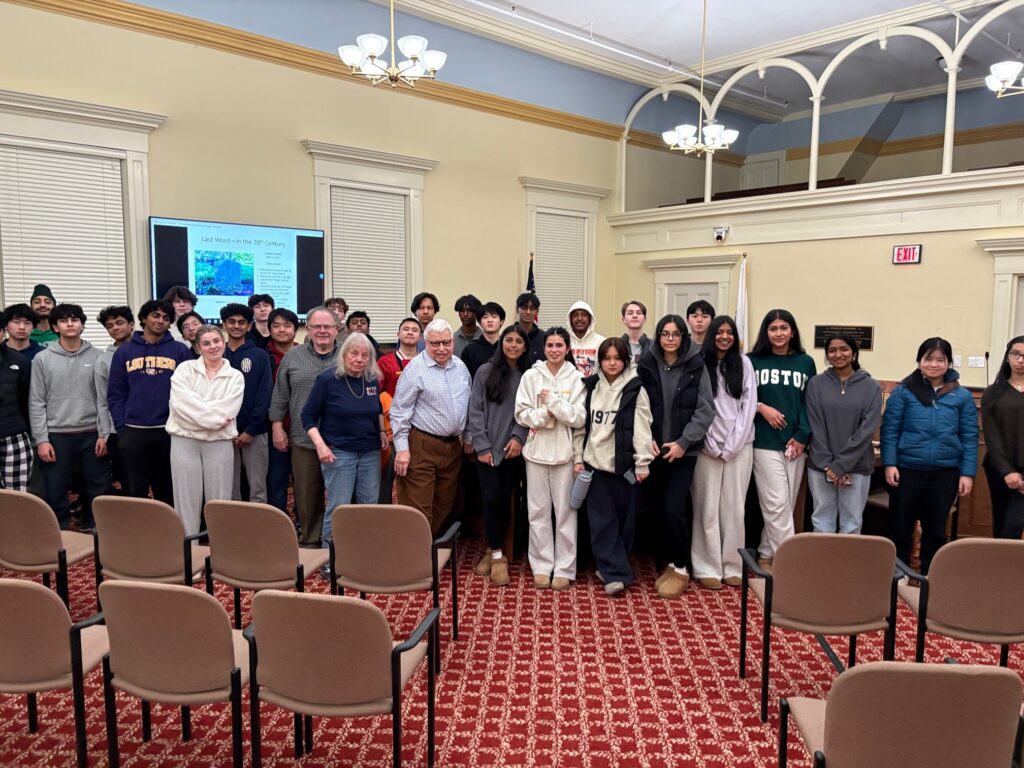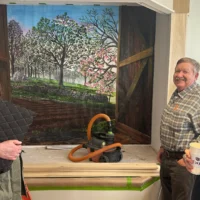On Feb. 26, “A Snapshot of Acton’s Early Black Residents” featured historical research documenting that Black residents were here when Acton first became a town in 1735, and several fought in the Revolution at the Concord Bridge and other New England battles.
This latest event in the Acton 250 lecture series featured local historians Bob Pion, Bill Klauer, and Anne Forbes, who presented historical research concerning Acton’s Black residents. Pion is the current president of the Acton Historical Society. Klauer is the immediate past president of the Acton Historical Society and a senior member of the Acton Historical Commission. Anne Forbes is the secretary of the Iron Work Farm in Acton and the clerk of the Robbins House in Concord.

Purpose of the Lecture: The three historians told attendees they had aimed to uncover the lives of Black individuals in Acton from the 1730s to the early 1800s. Their lecture emphasized that recent research had revealed previously unknown connections, and the intent was to provide specific details about these residents, moving beyond generalized historical narratives.
Challenges of Research: Researching this period posed significant challenges, due to incomplete records and the use of outdated, potentially offensive terminology. Primary sources included census and town records, tax documents, deeds, and family account books.
Slavery in Acton: During this period, Massachusetts had 2,720 slaves from 119 towns. The presence of slavery in Acton was acknowledged, although the extent was difficult to ascertain. A 1754 survey recorded one enslaved person, and tax records suggested others were held as servants, assumed to be slaves.
In Massachusetts, the abolition of slavery was achieved through a series of legal actions, most notably related to the Massachusetts State Constitution of 1780 and the “Quock Walker case,” a series of legal decisions by the Supreme Judicial Court of Massachusetts. These decisions established that slavery was incompatible with the 1780 state constitution.
Black Revolutionary War Figures: The lecture also highlighted the contributions of Black residents who served in the Revolutionary War, including John Oliver, Titus Haywood, and Caesar Thompson. Notably, John Oliver’s service was initially overlooked, in keeping with the historical tendency to exclude or minimize Black contributions.
The practice of “warning out,” where towns expelled residents who could not pay taxes, was also discussed, revealing the economic hardships faced by many. There was also mention of people living in the “poor house” in Acton.
Acton’s Black Population: Census records from the late 18th and early 19th centuries provided limited data on Acton’s Black population. The Oliver family stood out as the largest and longest-enduring family of color in the town. Their farms were located along Great Road in North Acton, and archaeological findings offered insights into the location of John Oliver’s farm.
The Oliver Family: The lecture detailed the Oliver family’s genealogy, noting its members’ significant role in Acton’s history and their participation in the Revolutionary War. The placement of their burial plots against the stone wall of the North Acton cemetery underscored the social marginalization they experienced, even in death.
You can watch the entire 90-minute lecture on Acton TV by clicking on “Acton 250 Lecture Series: A Snapshot of Acton’s Early Black Residents.” You can also visit the Acton Historical Society website as well as the Acton 250 Events section of the Town of Acton’s website.
Greg Jarboe writes on many topics for the Acton Exchange and he is the Senior Center beat reporter.


